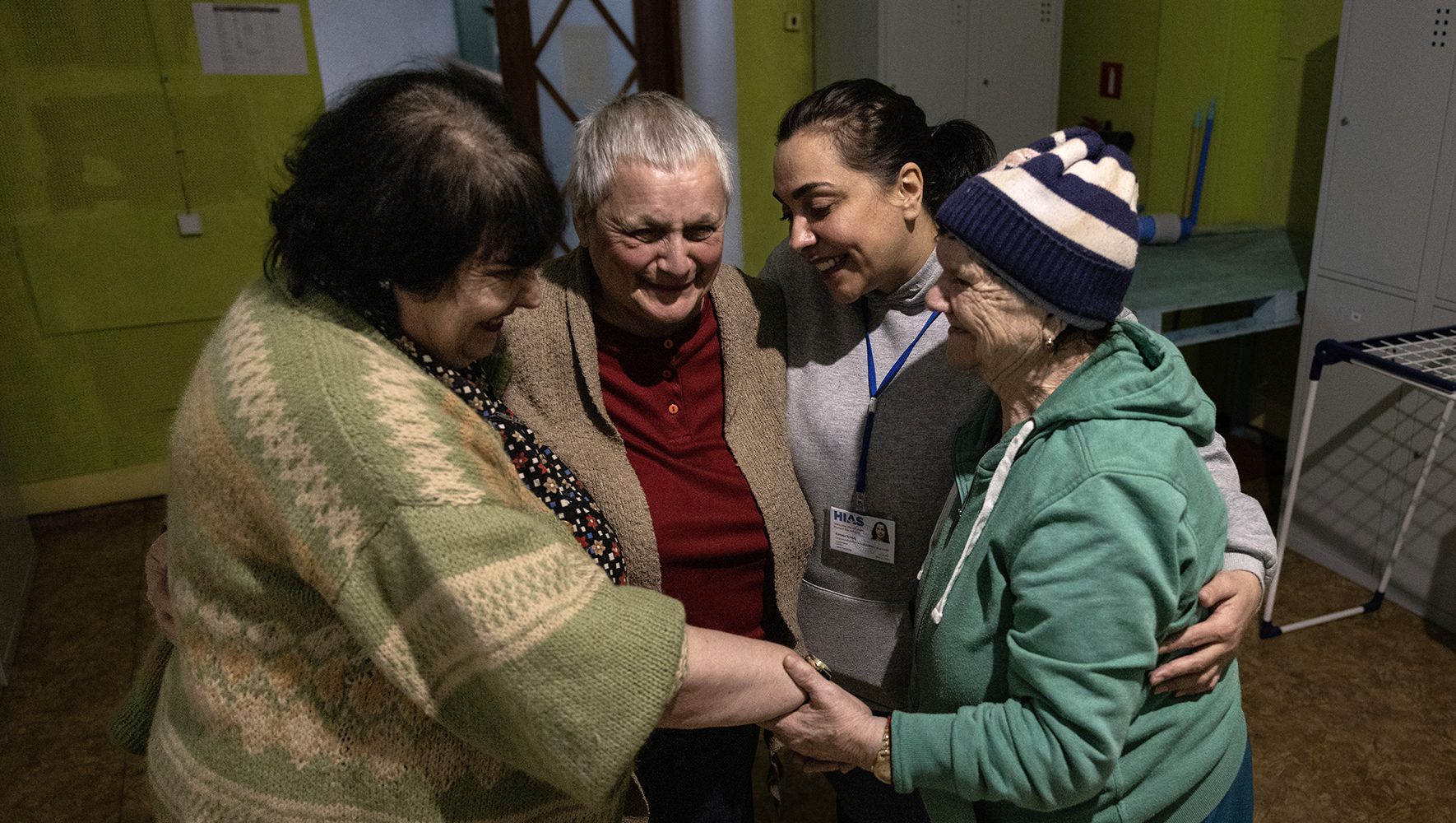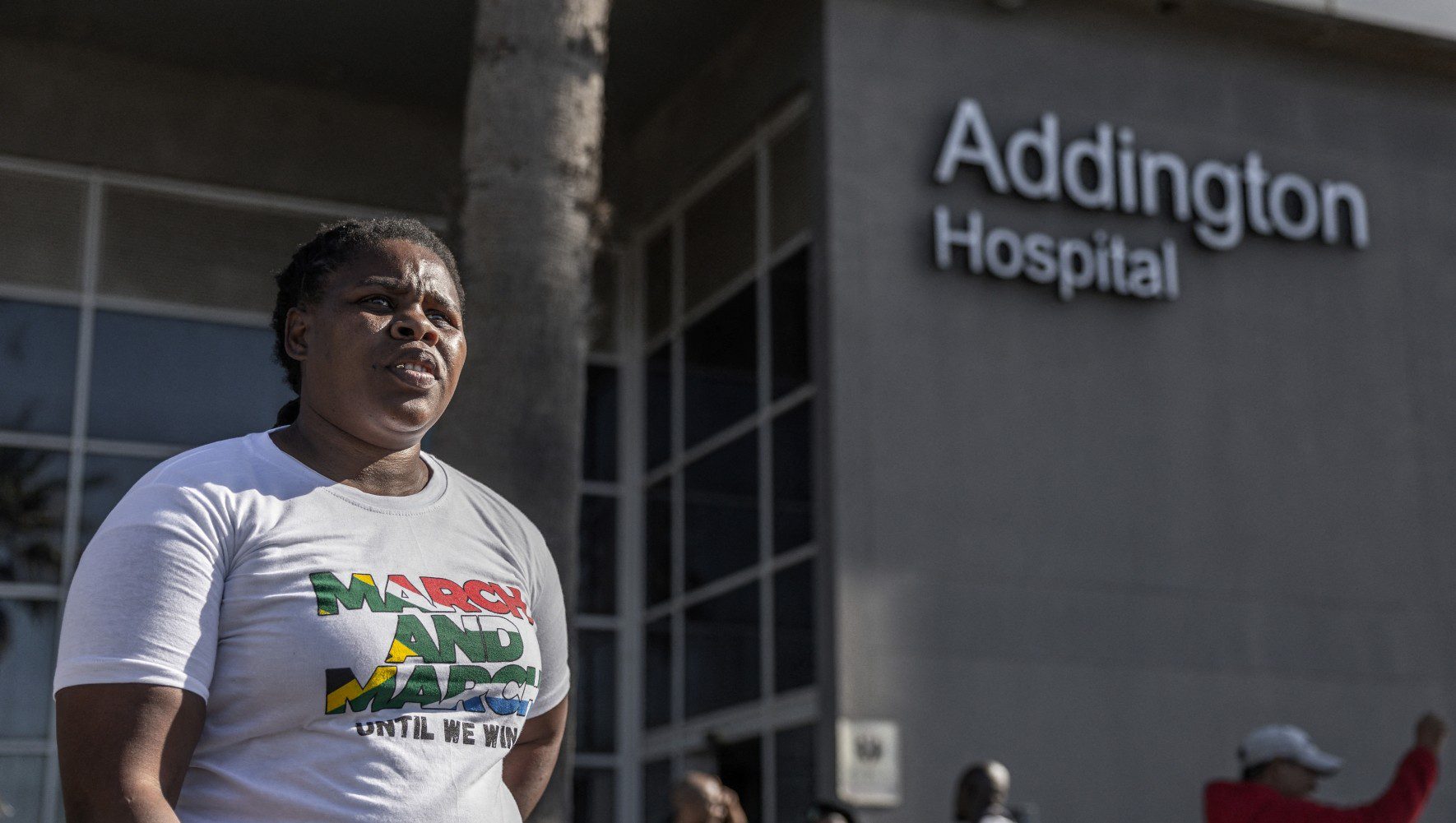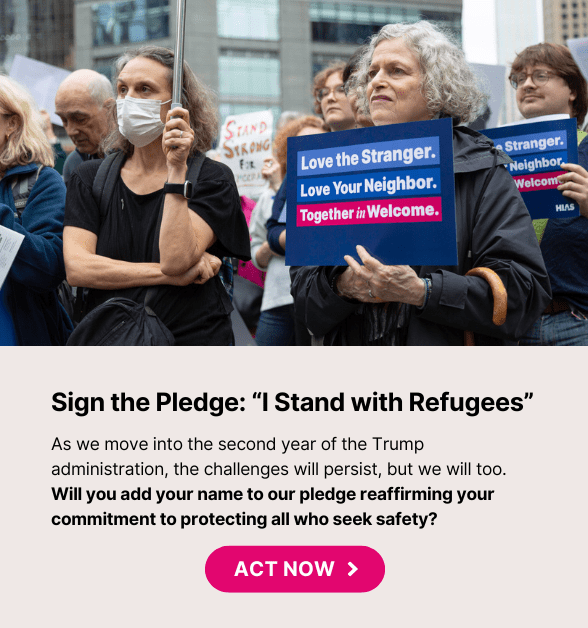
This month, HIAS is sponsoring seven women at the forefront of the humanitarian response to the war in Ukraine to travel to the United Nations. The purpose of their visit is to bring their first-hand accounts about the war’s ongoing disproportionate impact on women and girls — and reinforce the urgent need for support for women-led initiatives in the region.
“It is not just about reparations,” said delegation representative Iryna Kuratchenko, a Ukrainian psychologist and forensic specialist. Her organization, Vzayemodiya, focuses on violence against women and girls in Zaporizhzhia, Ukraine. “It is about the full support for survivors.”
Working together with the Women’s Refugee Commission, HIAS wants the women’s message to officials in New York to be clear: The response to the displacement crisis and the continuing incidence of gender-based violence in Ukraine and surrounding countries must center around a commitment to the increased representation and leadership of women and girls. HIAS’ commitment to support small local organizations that provide services to refugees and internally displaced people is also based on gender-responsive and equitable support of women- and LGBTQ+-led initiatives.
"It is not just about reparations. It is about the full support for survivors."Iryna Kuratchenko, Ukrainian psychologist and forensic specialist
“HIAS is trying to get outside the box,” said Heidi Lehmann, HIAS’ senior advisor on gender and inclusion. “If we are only dealing with large NGOs, we are not reaching the people who need help the most.”
Delegation members represent grassroots organizations that work with Ukrainian refugees in Moldova, Poland, and Romania, as well as with internally displaced people inside Ukraine. Their visit is part of the organizations’ ongoing partnership with HIAS, which works with local organizations through its offices in Ukraine and surrounding countries where refugees have sought protection. In 2023, HIAS piloted the Women and Girls Fund, an emergency participatory grantmaking funding model in Ukraine, to shift power to communities leading response efforts and to promote equity and agency in humanitarian funding.
HIAS is continually working out how to get financial as well as organizational and technical support to the women-led organizations to make the greatest impact. The local groups have the connections and on-the-ground experience but lack the time or visibility to get large grants. HIAS can assist in coordinating projects and figuring out what expectations are manageable.
According to Raphael Marcus, HIAS’ chief programs officer, HIAS’ push for more localized action began with the recognition of the crucial work local organizations were already doing, and with the understanding that HIAS’ activities in Ukraine would optimally build on that existing work rather than replace it.
“HIAS wants to shift power to local women and LGBTQ+- led organizations to foster more gender responsive humanitarian action,” Marcus said. “Prioritizing support to these organizations has been a great way of driving this ambition and changing conventional humanitarian response that for too long has failed women and girls and lacked sufficient gender responsive action across all phases of humanitarian relief.”
“HIAS wants to shift power to local women and LGBTQ+- led organizations to foster more gender responsive humanitarian action.”Raphael Marcus, HIAS’ chief programs officer
One of the delegation participants is Jarmila Rybicka, who started a socially engaged bistro in Poland which became Conflict Kitchen, a multicultural space run by refugees which supports their self agency and empowerment. Conflict Kitchen’s delicious food has brought people together, offered legal employment, and provided a sense of belonging. When full-scale war broke out in 2022, Conflict Kitchen began providing shelter, organizing safe travel, and offering other life-saving support to refugees coming to Poland. Today, the bistro continues to support the most marginalized refugees, including those from third countries (without Ukrainian passports), stateless people, and LGBTQ+ refugees.
Following their arrival in New York City on March 16, delegation members will participate in panels co-sponsored by the Permanent Missions of Germany and Ukraine to the United Nations, in association with HIAS and WRC, to discuss gender-responsive approaches to recovery and reconstruction in Ukraine. Their talk will also cover the role of local women- and LGBTQ+-led organizations in promoting accountability and justice for gender-based violence. On March 21, the delegation will join a discussion organized by the UN Commission on the Status of Women about financing and institutional reform for gender-responsive recovery and reconstruction. While in New York, members also plan to meet with other stakeholders, including UN Women, UNICEF, and UNHCR.
On March 25, delegation members will travel to Washington, D.C., where they will meet with policymakers in Congress and the administration.



